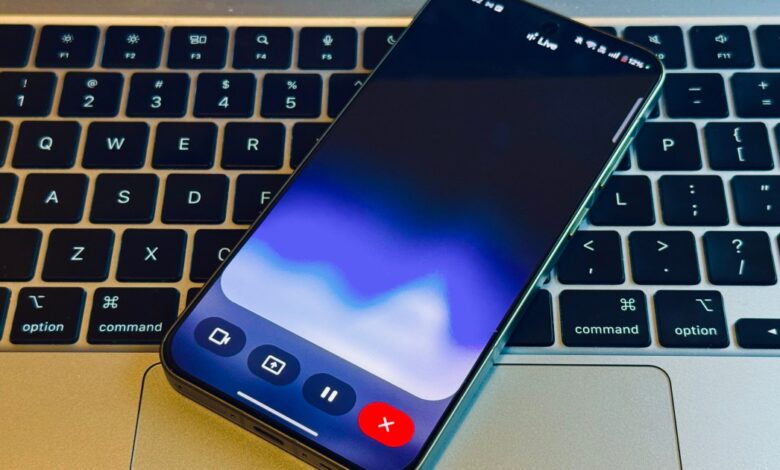Is AI the Future of Your Keyboard and Mouse?

The Future of Input: Can AI Replace Our Keyboards and Mice?
“Hey ChatGPT, click on the password field in that pop-up at the bottom left, type XUS&(#($J, and hit Enter.”
Sounds fun, right? No thanks. I’d rather move my budget mouse and type those twelve characters on my overly noisy keyboard than risk saying my password out loud in a shared workspace.
It’s impressive to see ChatGPT handle voice commands to book tickets for eight friends to catch a Liverpool game at Anfield. But would you trust it with yoru password? Or would you prefer typing it yourself?
Imagine diving headfirst into AI technology only to find that when it comes time for crucial tasks—like entering passwords—you’re stuck because you need a keyboard or mouse. This dilemma has been on many minds after witnessing flashy demos from companies like Google, OpenAI, and Anthropic.
A Valid Concern
This year’s Google I/O event showcased AI as its main theme. By the end of the presentation, I was convinced that Android devices are about to undergo meaningful changes. This shift will also affect platforms where Gemini is implemented—from Gmail in Workspace apps to navigation features in Google Maps while driving.
The standout demonstration was Project Mariner alongside Project astra's next research prototype. Picture an advanced conversational assistant capable of executing tasks without requiring any screen taps or keyboard inputs. You could seamlessly transition from reading user manuals online to watching instructional videos without losing context.
This feels like we’ve finally reached a point where true memory capabilities are being integrated into AI systems. In web browsers, these tools can book tickets for you and take you straight to the confirmation page where all that's left is verifying your details before payment—a process that raises questions about whether keyboards and mice might soon become obsolete as voice interactions gain prominence.
The Risk of Mistakes
As strange as it may sound,computers already have built-in voice control options for navigating their operating systems. Both Windows PCs and macOS offer voice access tools within their accessibility features—complete with shortcuts designed for efficiency.
The rise of next-gen AI models suggests we might be moving toward eliminating keyboards and mice altogether—not just limiting this technology to assistive uses but making it mainstream.
Consider combining Claude Computer Use with eye-tracking input from Apple’s Vision Pro headset. if you're not familiar with Claude Computer Use by Anthropic—it allows an AI system “to use computers like humans do—by observing screens, moving cursors around, clicking buttons, and typing text.”
Now imagine giving verbal commands directly to Claude through built-in microphones while gestures fill any gaps needed during execution tasks—the Vision Pro has shown us how effective eye-tracked controls can be when done accurately.
The Last Step Matters

The Final Hurdle
If you've seen demonstrations showcasing Search's AI Mode or Project Mariner's agent capabilities along with Gemini Live features—you've caught glimpses of what voice computing could look like in practice.
While these advancements seem incredibly convenient at first glance—they can quickly become cumbersome when faced with lengthy instructions such as “Move your cursor over the dialog box located at the top-left corner then click on the blue button labeled Confirm.” It becomes tedious even if everything leading up was handled smoothly by an smart system.And let’s address another vital issue: AIs aren’t perfect yet! As Anthropic points out regarding Claude Computer Use: “At this stage it's still experimental—sometimes clunky or prone to errors.” This situation mirrors challenges faced by OpenAI’s Operator Agent or similar tools currently under progress by Opera.
Removing customary input methods from an AI-enhanced computer feels akin driving a Tesla equipped with full self-driving (FSD) tech—but lacking steering controls; sure it'll get somewhere—but you'll need manual control if somthing unexpected occurs!
In computing terms think troubleshooting scenarios where human intervention remains essential! Now picture relying solely upon an audio-driven model (captured via microphone) until reaching final steps requiring closure—for instance completing payments.
Even utilizing Passkeys requires confirming identity through passwords authenticator apps fingerprints etc.—no OS developer wants unregulated access granted over sensitive operations!
It's simply too risky allowing automated agents free rein here—even amidst conveniences offered via Passkeys! While Google claims Gemini learns based upon memory & user interactions—it all starts off needing monitoring computer usage which fundamentally relies back onto good old-fashioned physical inputs again…so we're right back where we started!
Virtual Reality: A Long Road Ahead
When discussing replacing conventional input devices such as keyboards/mice using advanced technologies—we're realy just talking about substituting them temporarily before reverting back towards familiar replacements instead! There exists extensive research dating back years exploring virtual alternatives long before groundbreaking transformer papers revolutionized artificial intelligence industry standards today!
For instance DexType launched its app leveraging Leap Motion hardware enabling users experience virtual typing mid-air sans touchscreens/fancy projectors alike Humane Ai Pin concept introduced recently too! Although Leap Motion ceased operations last year—the idea persists onward…
Meta stands out among competitors possessing realistic software/hardware stacks geared towards alternative forms interaction termed human-computer interaction (HCI). Their focus lies within wrist-worn wearables facilitating gesture-based controls unlike anything seen previously; rather than tracking limb movements they utilize electromyography (EMG)—converting electrical signals generated wrists into digital inputs controlling various devices including cursor/keyboard functions alike!
Moreover meta asserts these gestures outperform standard key presses due speed advantages derived directly transmitting electrical impulses straight from hand device instead waiting finger movements complete actions taken today tapping selecting songs clicking mouses etc., according statements made representatives company itself…
More Repackaging Than Replacement?
However there remain two significant issues surrounding Meta's approach regardless whether integrating artificial intelligence elements not…First off conceptually speaking cursor still exists alongside digital format versions keyboards despite transitioning away physical counterparts entirely thus merely switching formats ultimately leads us nowhere new whatsoever…
secondly existential dilemmas arise as current wearable technologies remain largely confined laboratory settings awaiting commercial release likely priced beyond reach average consumer budgets initially anyway…Even basic third-party applications face subscription barriers hindered further limitations imposed operating systems themselves preventing widespread adoption across board anytime soon either way…
I can't envision abandoning trusty 0 keyboard swapping experimental device relying solely upon gesture-based inputs replacing entire workflows effectively either way…Most importantly developers embracing natural language-driven interfaces will take considerable time effort hence prolonging transition period significantly overall…
What alternatives exist then? Well existing applications such WowMouse allow smartwatches serve gesture recognition hubs translating finger/palm motions accordingly however they fall short providing comprehensive experiences akin full-fledged traditional setups available presently…Again granting access sensitive data poses risks OS overseers vehemently oppose given past incidents involving keyloggers etc.,so caution must prevail here always…
Ultimately we're witnessing remarkable strides forward concerning conversational abilities exhibited modern-day models coupled agentic functionalities evolving rapidly yet still necessitating completion processes involving clicks keystrokes rather than fully supplanting them altogether…Additionally cumbersome nature inherent lengthy vocal directives frequently enough outweighs benefits gained compared hitting shortcuts/mouse clicks rather whenever possible too much hassle involved or else…
In essence while advancements made suggest potential reduction reliance physical inputs won't eliminate necessity entirely—not anytime soon anyway!





